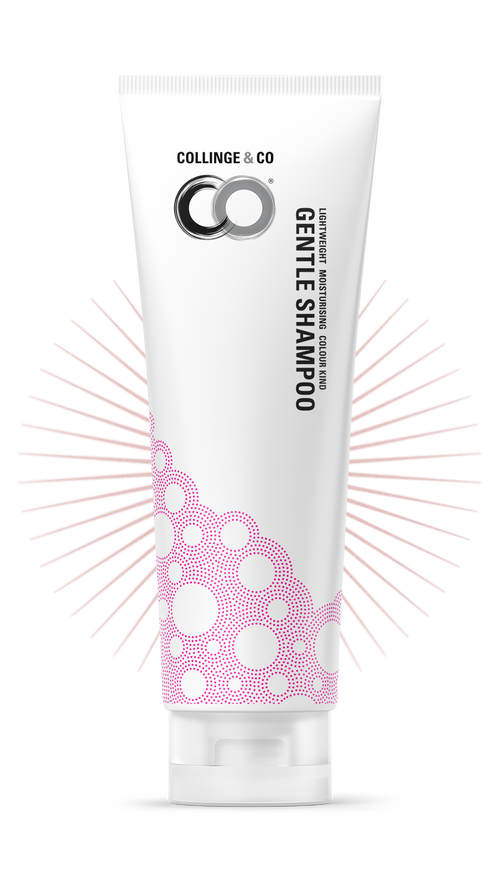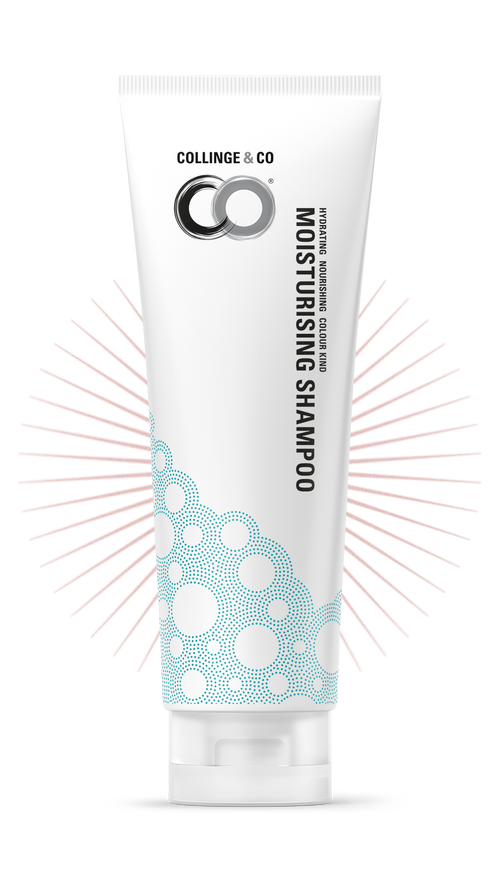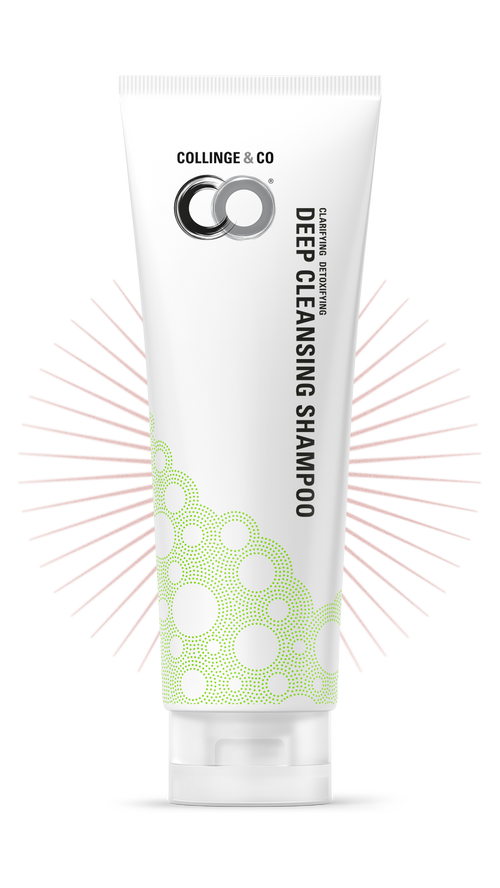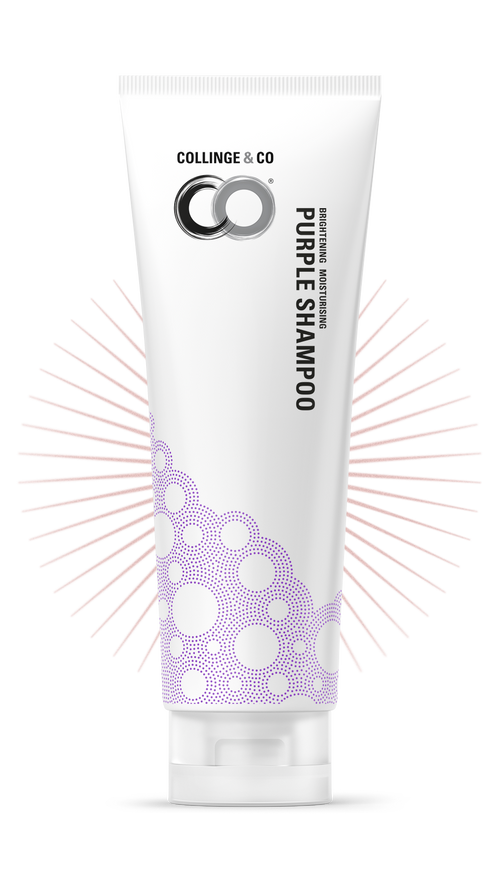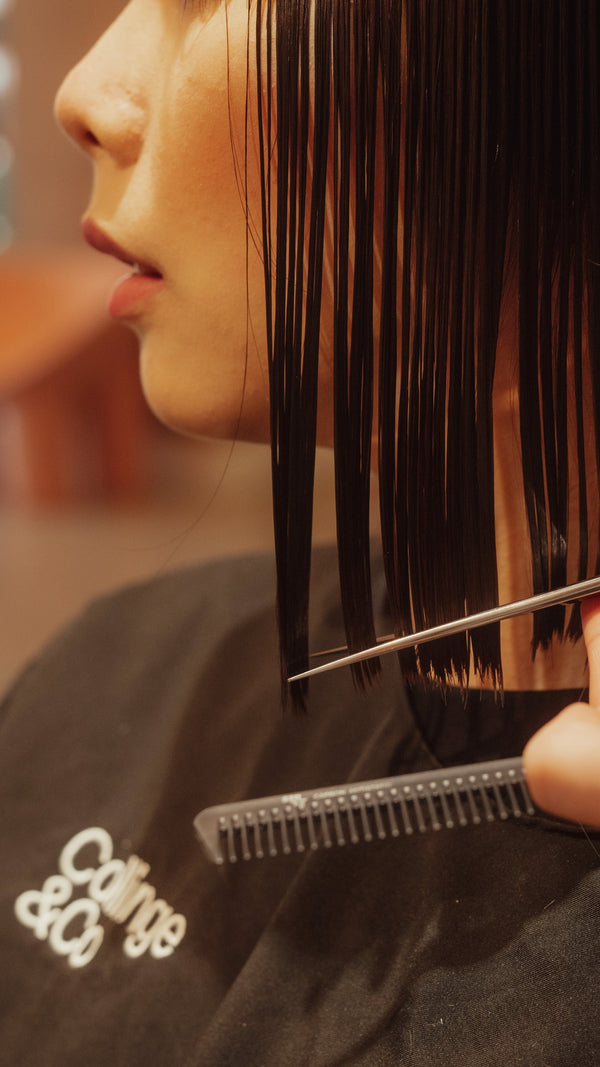Your hair washing questions, answered
10.10.2025
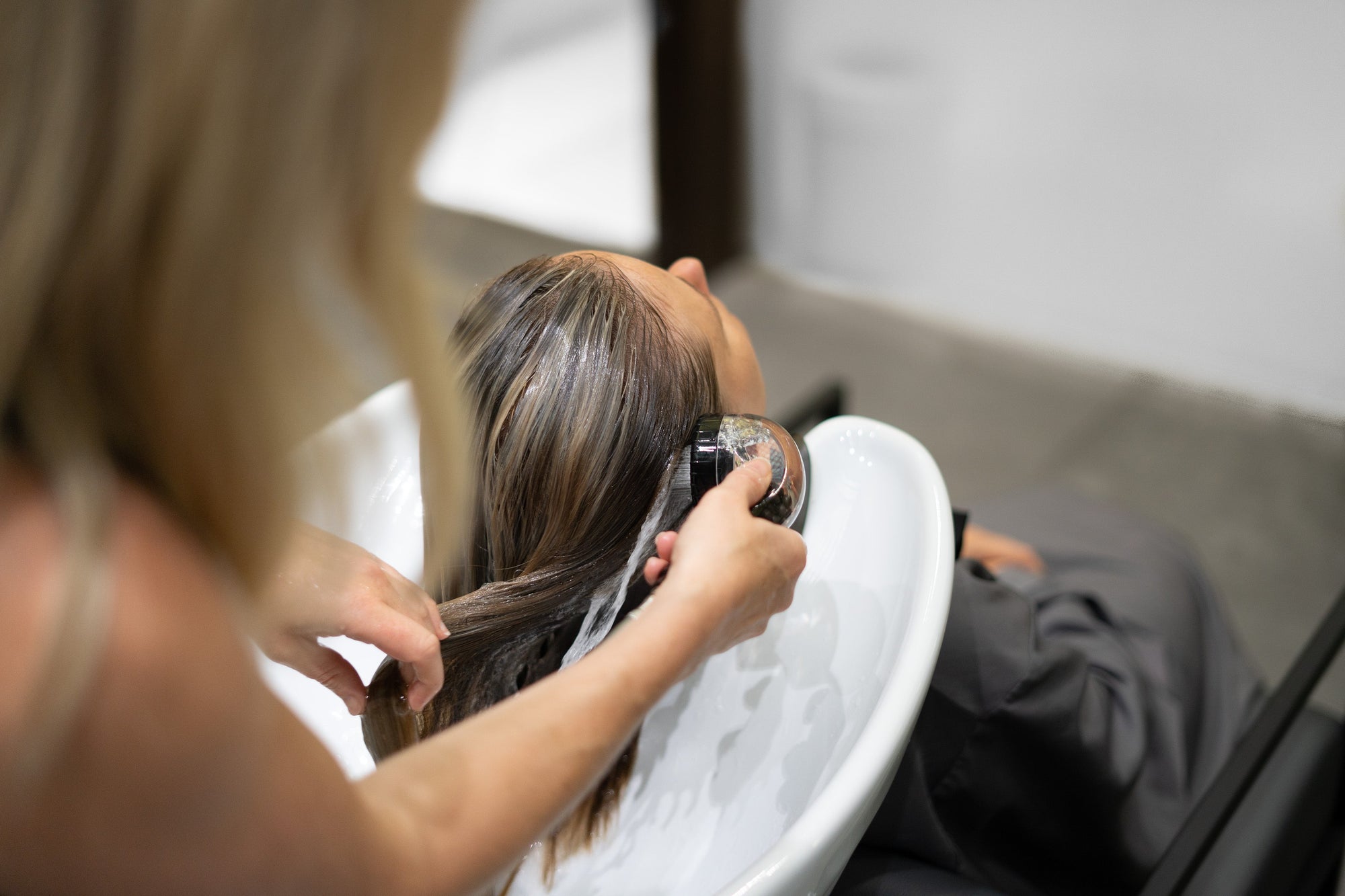
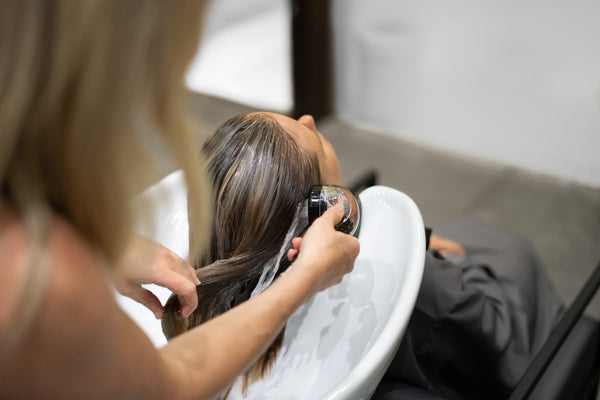
We are constantly bombarded with advice from various experts on how frequently we should shampoo our hair, what products we should use and what’s best for our hair type, which can be very confusing. We say: There is no one-size-fits-all haircare routine, and what is most suitable for your hair will depend on your hair type, your environment, your routine and of course, personal preference.
In this blog, we’ll address some common questions we hear from our community surrounding all-things hair washing. We’ll cover all areas, such as choosing the best washing frequency for your hair, the most suitable products and the best ingredients to look out for.
How often should I wash my hair?
The best wash frequency for your hair depends on a number of factors, like your hair type, lifestyle and environment.
Fine or greasy hair
If you find your hair is fine or greasy, you might prefer to wash your hair daily. However, washing too frequently can strip your hair and scalp of natural oils, leading to overproduction of sebum (which can actually be the root cause of greasy hair).
Taking this into account, you should opt for a gentler shampoo that’ll remove dirt and grease without upsetting your scalp’s balance of natural oils. Later in this blog, we’ll talk about the types of products and ingredients to look out for if you prefer to wash daily.
Dry or coarse hair
Dry or coarse hair may need washing less frequently, but it's still important to wash regularly to remove grime and cleanse your scalp. Your hair might look clean after five days, but if it's been exposed to city pollution, if you ride a bike, or play sport, it can accumulate grime made up of tiny smoke particles and residues. If you occasionally go a week without shampooing, you run the risk of clogged follicles, which disrupt your natural sebum production and scalp health. Blocked pores and follicles can cause flakiness, itching, sensitivity, and in extreme cases, dandruff and hair loss. If you find your hair is dry or coarse, we recommend washing hair at least every 3-4 days.
For most people, washing every other day is a good frequency for keeping a balance between clean hair and healthy scalp oil production.
Is it bad to wash your hair every day?
No - If you use a good quality, gentle shampoo, it's not damaging to shampoo your hair every day.
What's the best way to shampoo my hair?
Make sure you completely saturate your hair with warm (not excessively hot!) water before applying shampoo. The amount you use depends on length and thickness, but use enough to achieve a lather (you can always add more). Start from the roots with medium, firm pressure using the pads of your fingers in circular movements. Then work the shampoo through to the ends. Never 'scrub' the scalp, and avoid using products like plastic scalp massages - these can be far too rough on the scalp when used incorrectly, so we recommend just using your fingers. After 2-3 minutes, rinse from root to tips.
Always wondered why your hair feels so ‘squeaky-clean’ when it’s washed at the salon? Aside from using the right products for your hair type and washing thoroughly, we also shampoo your hair twice! The second wash needs far less shampoo and pressure, and the purpose is to ensure any dirt, oil or product build-up is fully removed.
I like to wash my hair every day. What shampoo should I use?
If you wash your hair every day it’s important to choose a gentle shampoo, and sulphate-free formulations are generally best. In our salons, we use Collinge & Co shampoos, as they’re specially formulated to be gentle and kind to hair. Our Gentle Shampoo is sulphate-free and instead contains coconut oil and fruit sugar derivatives, which help to gently cleanse without opening the cuticle. Need to brush up on your hair science? Read our hair damage and science blog here to learn more about the hair cuticle.
When we developed the Collinge & Co wash and care range, we had one clear goal: we wanted it to be gentle and kind to your hair. That meant researching the right cleansers and ingredients to protect and restore hair to a healthy condition.
What are the benefits of sulphate-free shampoo?
So, what are sulphates? Sulphates are a type of detergent used in everything from household products to soaps and shampoos. They're very effective cleansers, but they can be drying to hair and skin. Sulphate-free shampoos use gentler surfactants to remove grease and dirt from your hair and scalp, without stripping your hair of its natural oils.
Which is the best shampoo for curly hair?
Curly hair is prone to dryness, as it’s more difficult for the natural oils from your scalp to travel down the hair shaft. So, an important part of curly hair routines is preserving and adding moisture to keep those curls hydrated, happy and well-defined. As we mentioned earlier, shampoos containing sulphates can open the cuticle, which can lead to moisture loss and dry hair. So, opt for a sulphate-free shampoo to gently cleanse, and moisturising masks, conditioners or oils to help hydrate your hair. If you use gels, mousses, or other products to define your curls, it’s important to regularly cleanse your scalp and hair to avoid product build-up.
Our shampoo recommendation for curly hair is Collinge & Co Moisturising Shampoo, which contains coconut and fruit sugar-derived surfactants instead of sulphates, helping to gently cleanse hair without opening the cuticle.
Why does my hair feel dry and dull after swimming? What should I use?
Swimming can deposit substances like chlorine or salt in your hair, which can be a little more challenging to remove. This is an instance where we would recommend a shampoo with sulphates, so look for a clarifying or deep cleansing shampoo. Sulphates are strong cleansers, meaning you’ll be able to achieve a deeper clean on the days when you really need it, such as when you’ve been swimming, have product build-up or have more oily-feeling hair. You can alternate washes using a gentler shampoo and a more clarifying shampoo, depending on your routine and needs.
Straight after swimming, we recommend shampooing your hair as soon as possible to remove any chlorine or salt, which can affect your colour’s vibrancy, tone and cause damage. You can follow up a post-swim deep cleanse with a moisturising conditioner or mask to restore shine and add hydration.
Our Deep Cleansing Shampoo contains sulphates to deep clean your hair, B5 to aid moisture retention, suppleness and sheen, ginger root for a healthy scalp, making it the perfect addition to a swimmer’s routine.
I colour my hair. What shampoo should I use to protect my colour?
We’ve spoken a lot about the hair cuticle in this blog, and this is an important part of hair’s structure to talk about when we want to improve the longevity and vibrancy of coloured hair. The cuticle is the outermost layer of the hair shaft which acts like a shield, protecting the innermost layers from damage. When chemicals such as hair dye are applied to the hair, the cuticle scales lift, allowing dye to penetrate deeper into the hair shaft. Sulphates cause the cuticle layer to lift, which means that colour molecules can escape, causing colour to fade faster and look less vibrant.
To improve the tone, longevity and vibrance of your colour, it’s essential to use a sulphate-free shampoo. We use Collinge & Co Gentle Shampoo or Moisturising Shampoo on clients with coloured hair, as the gentle cleansing agents help to preserve colour whilst still giving a good clean.
Is dry shampoo bad for your hair?
Dry shampoo isn’t inherently damaging to your hair, as it simply absorbs surface oil to stop your hair looking greasy. It's great when you're short on time and is intended to be used occasionally in-between washes. However, it shouldn’t be used as a substitute for traditional shampooing. As with all products applied to the hair and scalp, overuse can lead to build-up and clogged pores, which can irritate the scalp and make hair feel limp. So, if you use dry hair shampoo as part of your regular hair routine, be sure to give your hair and scalp a good cleanse regularly to prevent any build-up.
Our final thoughts
Good hair hygiene forms the foundation of a great haircare routine, and is crucial for happy, healthy hair. Understanding how your hair type, environment and your lifestyle can all factor into your haircare routine will also help you determine what is the right wash frequency for you, and what products will work best for your hair.
Want to know more about your hair type and which products are best suited to you? Just have a chat with your stylist during your next salon visit.
